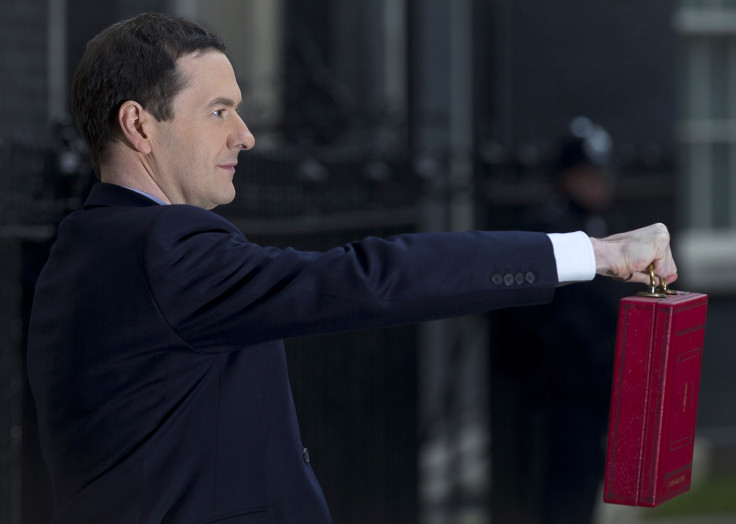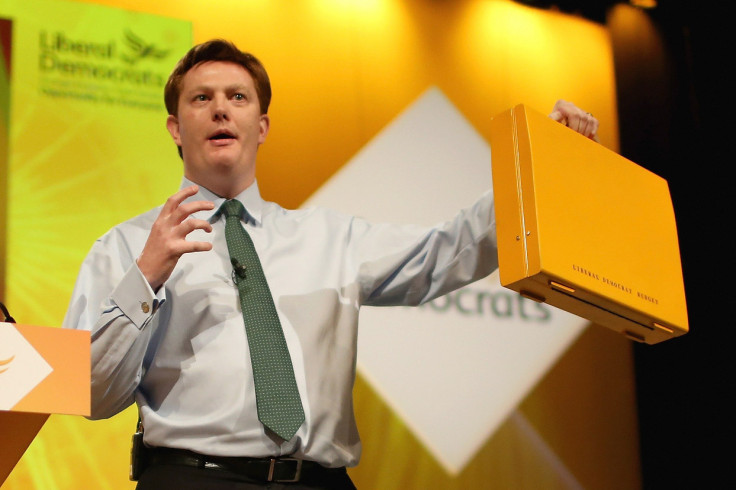George Osborne, your budget is a pathetic bribe - thankfully the UK public haven't bought it

Budget bribes work. It's a depressing truth for any voter to recognise, but the historical evidence is overwhelming. Norman Lamont's pre-election budget in 1992 ought to have stretched credulity beyond breaking point by offering nothing but sparkly goodies in the depths of a recession, and yet the electorate still preferred it to the more hard-headed and mildly redistributive shadow budget put forward by John Smith.
Luckily, the wonderful British constitution afforded us an interminable five years to wallow in the buyer's remorse that set in just weeks after polling day, and we put that time to splendid use by learning no lessons whatsoever.
Is history repeating itself right now? If so, we're even more blessed this time around, because the Fixed-Term Parliaments Act absolutely guarantees we'll have the full five years to fruitlessly reflect on our stupidity in taking at face value a budget that isn't worth the paper it's written on.
George Osborne delivered his speech at exactly the same point in the electoral cycle as Lamont did, ensuring that many of the "announcements" have no meaning other than as an election pitch.
If the Tories are re-elected, the proposals might possibly be enacted, in whole or in part, but all we've seen so far is one side of the balance sheet. The lesson we ought to have learned from the 1990s is that we can look forward to a ramping up of stealth taxes to pay for the few sweeties that are still left on the menu after polling day is done and dusted.
The initial headline verdict from the opinion polls was depressingly predictable: "Budget Bounce!" The YouGov poll on 20 March showed the Conservatives overturning a 1% deficit to move into a 2% lead, leaving the impression that the electorate have yet again fallen hook, line and sinker for an illusory pre-election giveaway from a Tory chancellor.
However, things aren't quite as they seem. There have already been several YouGov polls this month showing a narrow Conservative lead, meaning today's result is well within the recent "normal range". We may in fact be looking at early evidence that Osborne has failed to deliver a game-changer, and the appearance this afternoon of a Populus poll showing Labour pulling ahead slightly would tend to support that interpretation.
Perhaps it was always going to prove too difficult for the Tories to repeat the 1992 trick, simply because the realities of coalition politics meant that they could not act without constraint. The Liberal Democrats' only hope of averting an unmitigated electoral catastrophe is to successfully defend some of their English seats where the Tories are their main rivals.
So Nick Clegg and Danny Alexander had absolutely no incentive to sign off on a package of simplistic, eye-catching measures that might have painted Osborne as the champion of Middle England. Where Lamont was able to pull a rabbit out of the hat with a direct cut of income tax, Osborne had to make do with minor tinkering on tax thresholds, which is hardly likely to capture anyone's imagination.

Indeed, even to gain consent to go as far they did, the Tories had to indulge the Liberal Democrats with the unprecedented and bizarre spectacle of a semi-official "alternative budget".
Danny Alexander drove a stake through the heart of satire by brandishing a bright yellow Lib Dem "budget box" outside the Treasury, and then proceeded to deliver a speech that no one cared about in front of a near-empty House of Commons – but not before being warned by the Speaker that he somehow had to ensure his party propaganda was delivered on behalf of the whole government.
What did Alexander think he was achieving? No real thought seemed to have been given to the need to make the party seem distinctive with the actual content of the speech, which was standard middle-of-the-road fare – a little more humane than the Tories, a little more austere than Labour.
That recipe has precious little chance of winning back radical voters who put their faith in the party under Charles Kennedy, but have since drifted off to the SNP or the Greens because they think even Labour are far too addicted to the austerity agenda.
So I can only assume the theory was that the glamour of an official parliamentary announcement would somehow in itself be sufficient to make the Lib Dems look like serious contenders once again.
It's difficult to know whether to laugh or cry. Does their denial truly run so deep? It's a bit like suddenly discovering that, when The Little And Large Show was cancelled, Syd Little and Eddie Large were bought off with the contractual promise of a one-off prime-time show in 2015 – and that they've been assuming ever since that their Big Night will instantly reignite their showbiz careers.
Even at this ultra-late stage in the wretched life of the coalition, the Tories and Lib Dems are locked in a deadly embrace and are neutralising each other's best efforts to break free. The Lib Dems are left looking comically impotent, while the Tories merely look impotent.
Neither version of the coalition's budget is likely to turn the election campaign on its head – which means neither version is ever likely to be implemented. In the absence of an audacious conjuring trick from either the chancellor or the chief secretary, we continue to inch towards the probable outcome of a minority Labour government supported by a huge SNP contingent.
James Kelly is author of the Scottish pro-independence blog, SCOT goes POP! Voted one of the UK's top political bloggers, you can hear more from James on Twitter.
© Copyright IBTimes 2025. All rights reserved.






















